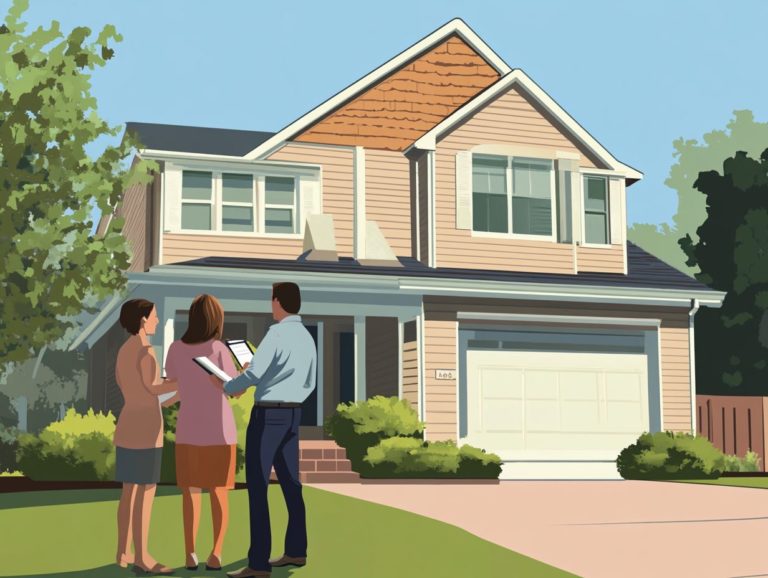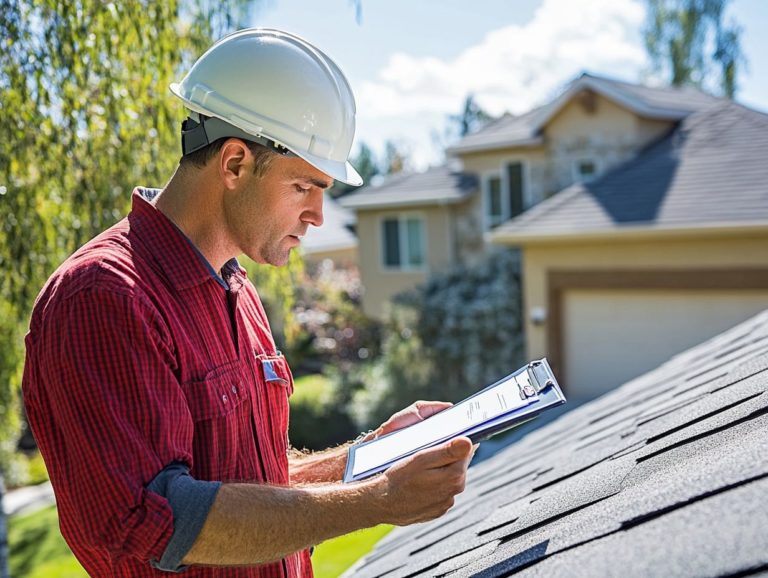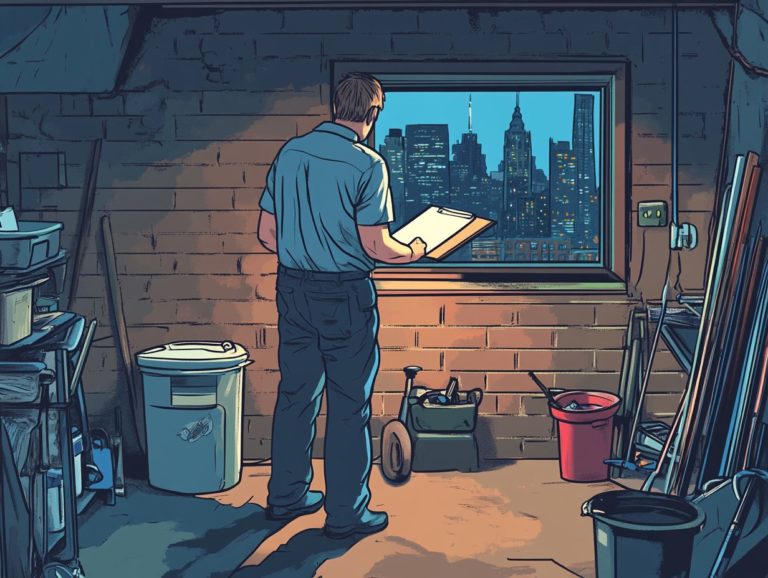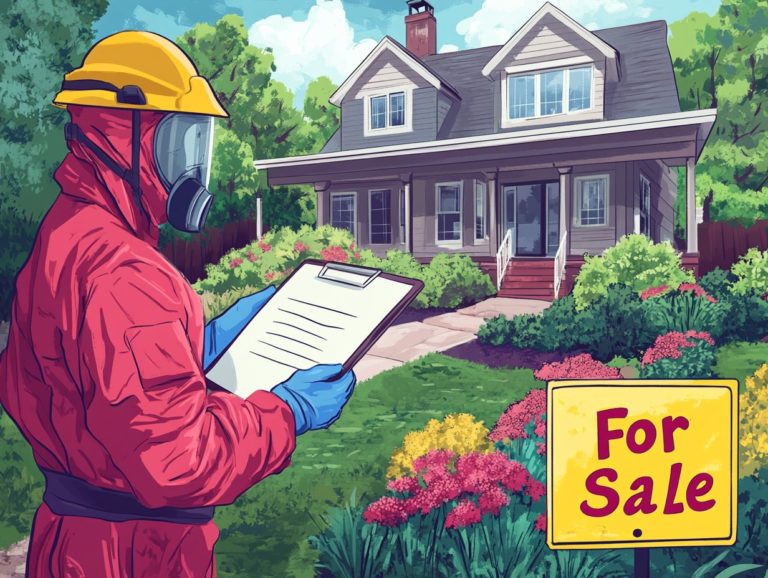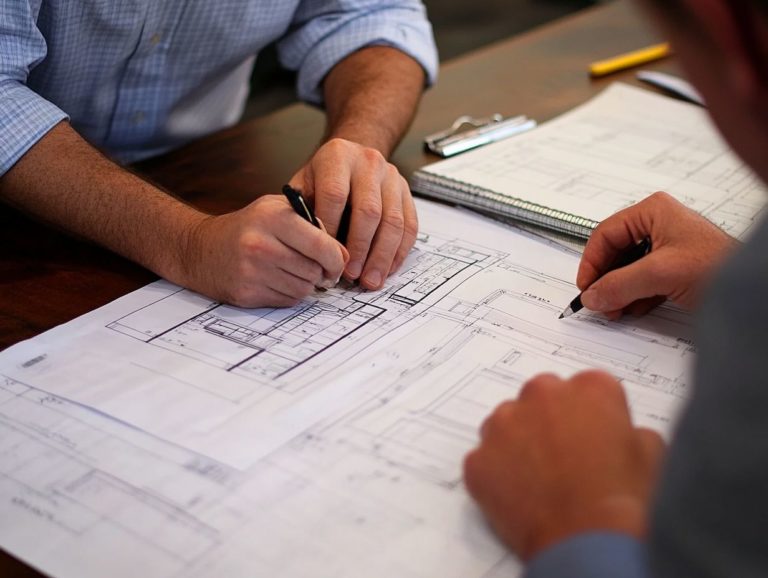Understanding Home Inspection Fees
Navigating the home buying process can feel daunting. However, a home inspection is a crucial step that brings you peace of mind.
This guide outlines what a home inspection involves, its importance, and the factors that affect inspection fees.
You will learn what s included in an inspection and tips for choosing the right inspector. This resource equips you to make informed decisions.
Whether you re a first-time buyer or a seasoned homeowner, you ll find insights that empower you throughout this experience.
Contents
- Key Takeaways:
- What is a Home Inspection?
- Why Do You Need a Home Inspection?
- Factors that Affect Home Inspection Fees
- What is Included in a Home Inspection?
- Understanding the Cost of a Home Inspection
- Average Fees and What They Cover
- Tips for Choosing a Home Inspector
- Qualifications and Experience
- Reviews and Recommendations
- Frequently Asked Questions
Key Takeaways:

- A home inspection is a thorough examination of a property’s condition, providing valuable information to potential buyers.
- Hiring a home inspector can save you time and money by uncovering hidden issues.
- The cost of a home inspection varies based on size, age, and location, as well as any additional services requested.
What is a Home Inspection?
A home inspection is an in-depth visual assessment by a qualified inspector. It evaluates the property’s condition.
This process focuses on major systems like heating, ventilation, air conditioning (HVAC), plumbing, and electrical systems. Engaging in this step ensures that every component is examined, providing valuable insights into the property’s condition.
Definition and Purpose
A home inspection involves a comprehensive visual examination of a property’s major systems, leading to a detailed report that points out any problems.
This evaluation plays a vital role in real estate, offering insights into the condition of your prospective home. By identifying potential issues, the inspection report gives you the power to negotiate repairs with the seller.
Sellers also gain a clear understanding of their property’s condition, enabling proactive measures before listing.
Ultimately, home inspections foster smoother transactions by ensuring clarity about the home’s state.
Why Do You Need a Home Inspection?
A home inspection is a must for every buyer and seller! It protects your interests and acts as a powerful negotiation tool.
This process enhances the transparency of the real estate transaction and contributes to a smoother experience.
Benefits and Importance
The benefits of a home inspection provide essential negotiation leverage based on findings, including potential repair compensation.
By examining crucial elements, a home inspection gives you invaluable insights, enabling informed decisions.
This not only instills confidence in the purchasing process but also encourages sellers to address necessary repairs for a successful transaction.
Sellers can enhance their property’s appeal and value, ensuring a more secure investment for both parties.
Factors that Affect Home Inspection Fees
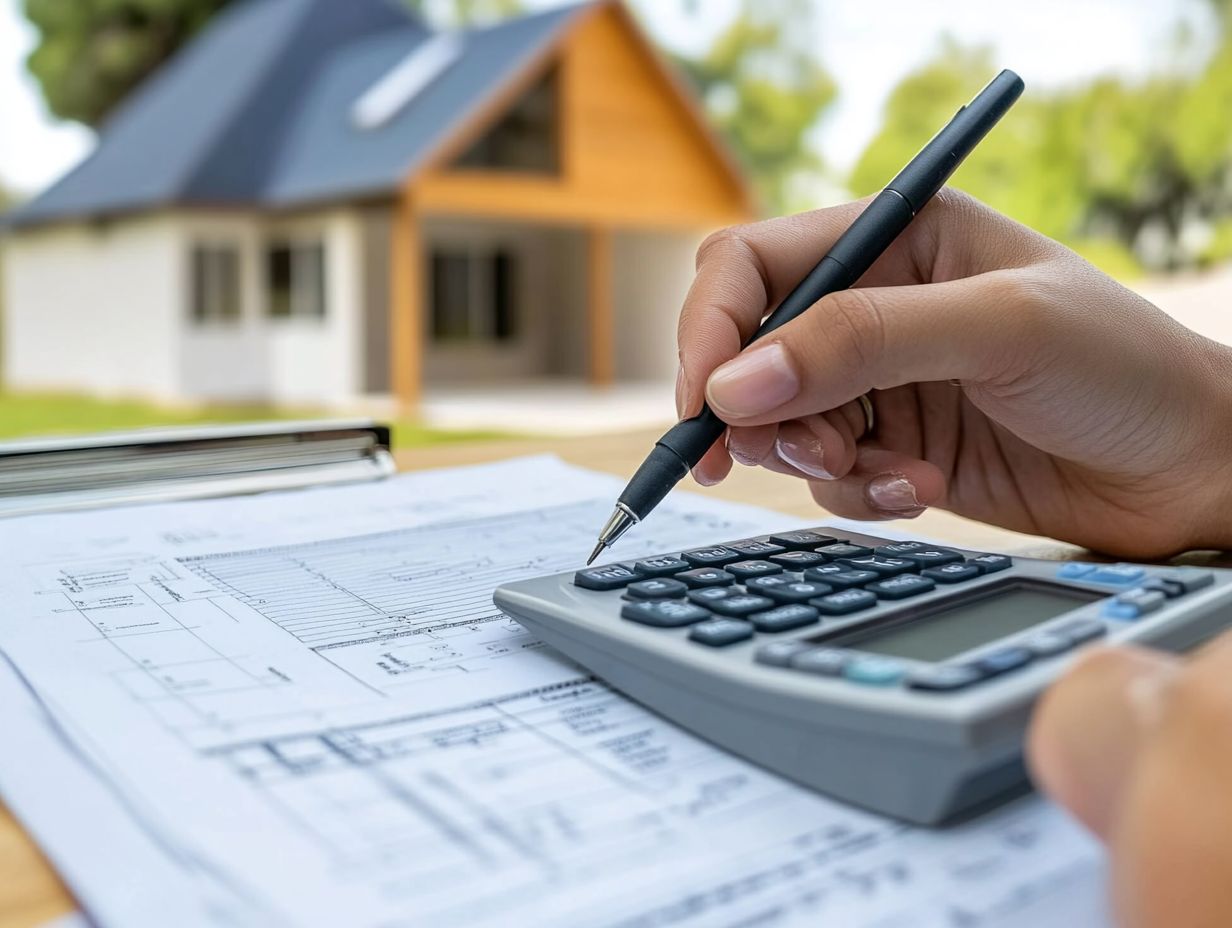
Several factors influence home inspection fees, such as property size, complexity of needed services, and local market competition, making it important to understand home inspection fees and costs.
As a home buyer or seller, understanding these elements is crucial for making informed decisions.
Size and Age of Home
The size and age of a home play a crucial role in determining the cost of a home inspection. Larger properties demand more time for a thorough check, while older homes often reveal a host of complex issues.
When you consider a spacious residence, be ready for inspectors to spend extra time examining various features from plumbing to roofing systems to ensure that nothing slips through the cracks.
On the flip side, the allure of older structures comes with its own set of challenges, such as outdated wiring or foundational concerns, which can complicate the inspection process. These factors can prolong the inspection and vary fees.
As a homebuyer, you should anticipate that a more thorough assessment might be necessary not just to uncover existing problems but to provide you with the peace of mind you deserve in your investment.
Location and Accessibility
Location and accessibility are important in determining the fees for home inspections. If your property is tucked away in a remote area, expect additional charges due to travel time and logistical considerations that inspection services must account for.
In bustling urban environments, you ll discover competitive pricing, thanks to the abundance of qualified inspectors ready to serve you. However, if you’re situated in a rural region, the story changes. The scarcity of experienced inspectors can drive fees higher, as these professionals may need to journey considerable distances to reach you.
Geographical factors also come into play, presenting accessibility challenges. For instance, if your property is nestled in mountainous terrain, it may require specialized equipment or expertise, which can further inflate inspection costs.
Understanding local market dynamics is vital for you as a homeowner, allowing you to budget effectively for these essential services.
Additional Services
Incorporating additional services like termite inspections, wind mitigation assessments, and comprehensive home inspections may increase your inspection fees. However, don t overlook these vital inspections they can save you from costly surprises!
These supplementary inspections offer you invaluable insights into potential issues that might not be apparent during a standard inspection. For example, termite inspections can reveal wood-destroying pests that could jeopardize the home s structural integrity. Wind mitigation assessments shed light on how well the property can withstand severe weather.
Conducting energy efficiency reviews can also highlight areas for improvement, leading to long-term savings on your utility bills. By embracing these vital services, you empower yourself to make more informed decisions, potentially avoiding unexpected repair costs and enhancing the overall value of your home inspection experience.
What is Included in a Home Inspection?
A comprehensive home inspection entails a meticulous examination of numerous areas and systems, including HVAC, plumbing, electrical components, and the foundation.
This thorough assessment guarantees that all major elements of the property are evaluated for both functionality and safety, providing you with peace of mind about your investment.
Areas and Systems Covered
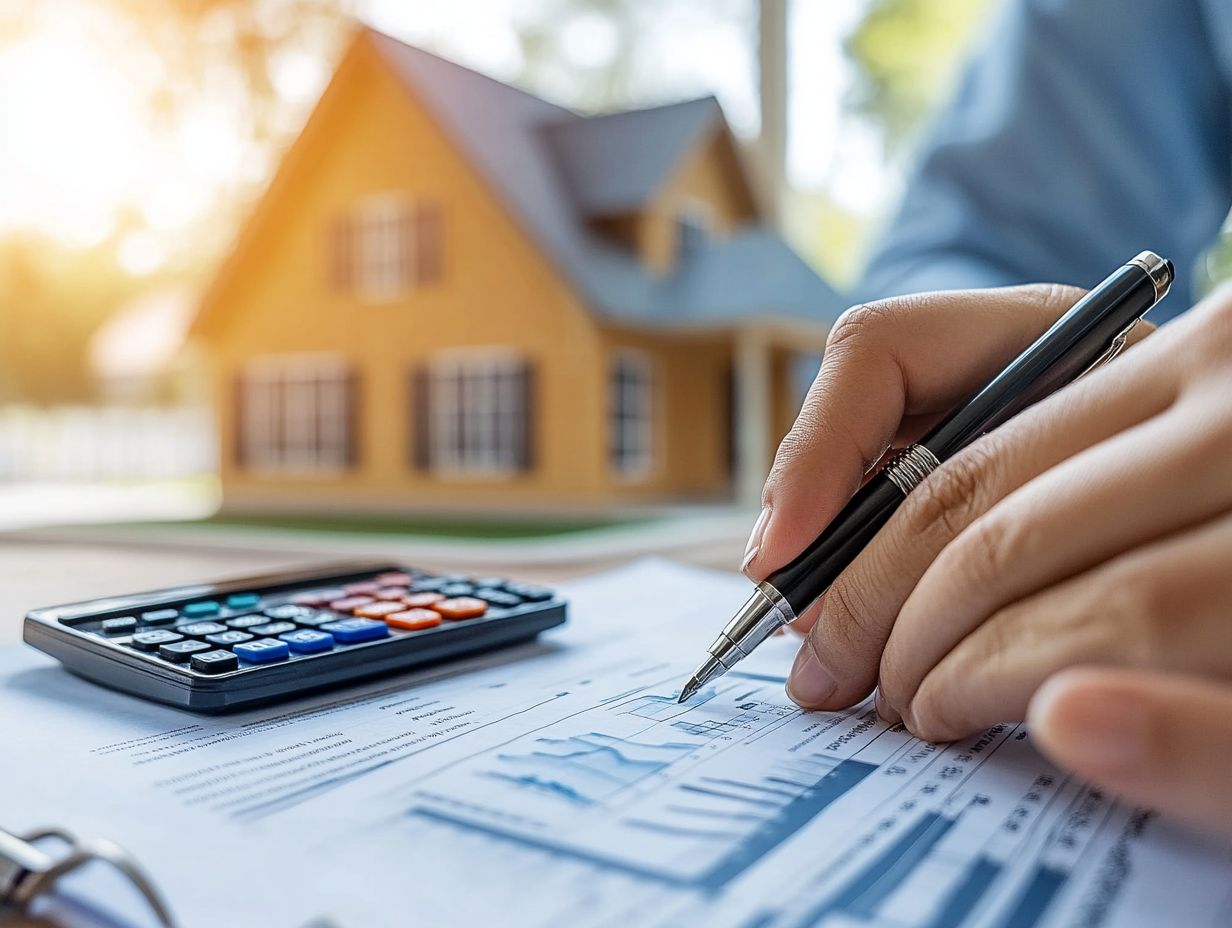
The areas and systems evaluated during a home inspection encompass essential components such as plumbing, HVAC, electrical systems, and the foundation. Each of these undergoes a meticulous visual assessment designed to pinpoint potential issues.
This comprehensive examination does more than highlight visible signs of wear and tear; it also reveals hidden concerns that could result in costly repairs in the future. For you, as a prospective buyer, these insights are invaluable they can significantly influence your negotiations and purchasing decisions.
Meanwhile, sellers gain an understanding of their property’s condition, allowing them to address issues proactively. Having a clear picture of these essential systems can instill confidence in both parties, facilitating a smoother transaction process and ensuring that the home adheres to safety and functionality standards.
Understanding the Cost of a Home Inspection
The cost of a home inspection can fluctuate significantly, influenced by factors like local averages, the size of the home, and the specific fees charged by your chosen service provider.
It s essential for you, as a buyer, to comprehend these variables to navigate the process effectively.
Average Fees and What They Cover
Home inspection fees can vary widely. They often reflect the depth of the examination and the quality of the detailed report you receive.
Typically, these inspections cover crucial aspects such as the condition of the home, plumbing, electrical systems, heating and cooling systems, and roofing. This information gives you, as a prospective buyer, a clear understanding of the property’s state.
Prices fluctuate based on the size, location, and age of the home. Standard inspections usually average between $300 and $500. You might also face extra costs if you need specialized services.
For example, radon testing, mold inspections, or pest evaluations can each add anywhere from $100 to $500 to your overall expenses, depending on the complexity of the assessments needed.
Tips for Choosing a Home Inspector
Selecting the right home inspector is vital for a thorough inspection.
As a prospective buyer, consider qualifications, experience, and reviews from past clients to make a smart choice. Paying attention to these details can protect your investment and provide peace of mind.
Qualifications and Experience
When choosing a home inspector, reviewing their qualifications and experience is crucial. These factors directly affect the quality of the inspection services you’ll receive.
A qualified inspector brings not just technical knowledge but practical insights from years of experience. These insights are essential for uncovering hidden issues that may be overlooked.
Their expertise often includes staying updated with the latest building codes and industry practices, ensuring that the inspection meets current standards.
By verifying these credentials, you can boost your confidence in the inspection findings, empowering you to make informed decisions that safeguard your investment and maintain safety in your home.
Reviews and Recommendations
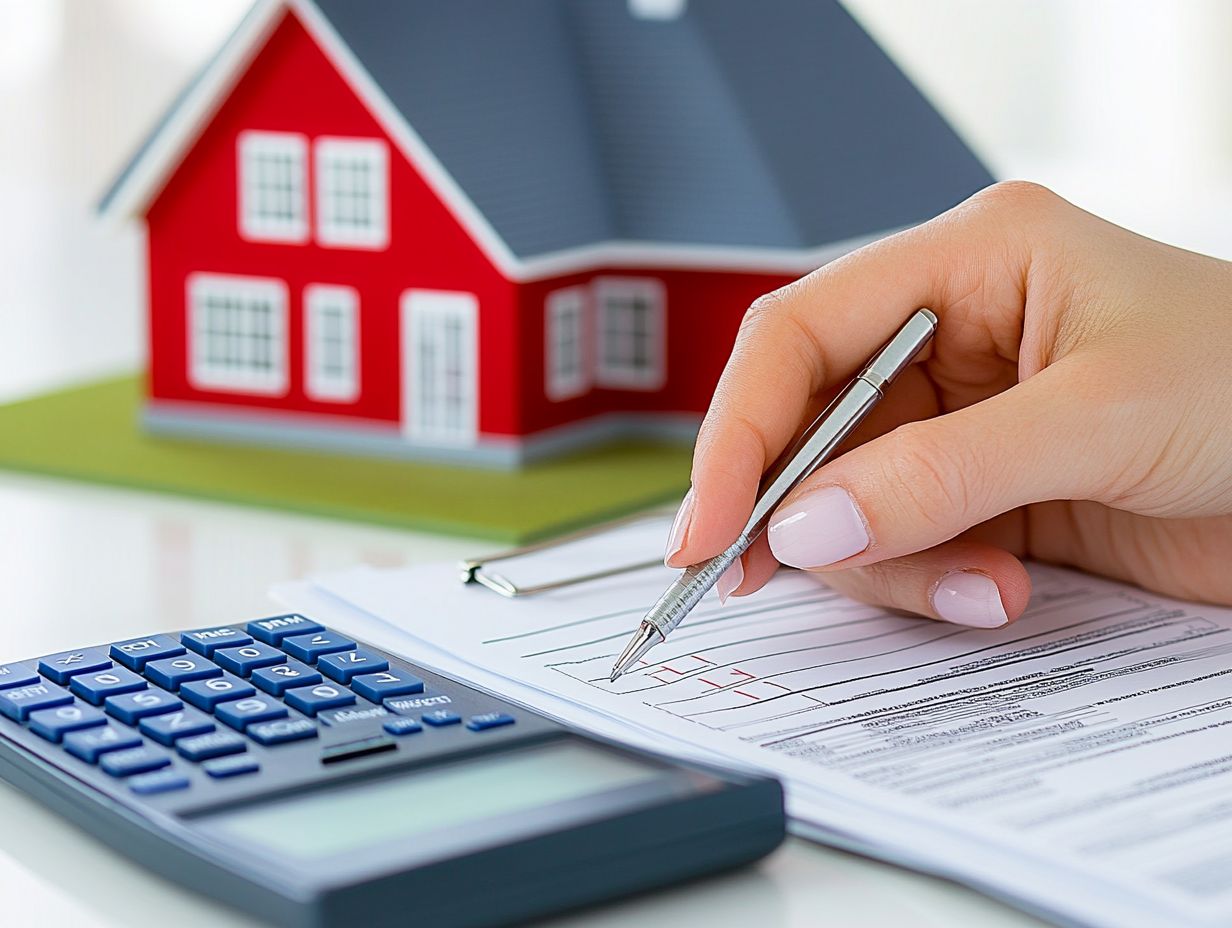
Reading reviews and asking for recommendations is a must! It can make all the difference in your home-buying journey. Firsthand experiences offer you valuable insights into the quality of the inspection process and the inspector’s reliability.
As a potential homeowner, dive into various resources. Don t just rely on online reviews; seek personal testimonials from friends or family who have had similar inspections.
Connecting with trusted sources can reveal critical details about the inspector s professionalism and thoroughness traits essential for a successful assessment.
Understanding the specific issues or concerns others have encountered helps you make informed choices, ensuring you select an inspector who not only meets but exceeds industry standards, ultimately safeguarding your investment.
Frequently Asked Questions
What are home inspection fees and why do I have to pay them?
Home inspection fees cover the cost of hiring a professional home inspector to evaluate a property’s condition. These fees account for the time, expertise, and resources needed to conduct a thorough inspection and provide a detailed report. Understanding home inspection fees is essential for buyers to ensure they are making a sound investment.
How much do home inspection fees typically cost?
The cost of a home inspection varies based on factors such as property size and location, as well as the inspector’s experience and qualifications. On average, home inspection fees range from $300 to $500. Researching and comparing fees from different inspectors is important to find one that fits your budget and needs.
What is included in a home inspection?
A standard home inspection typically includes evaluating structural elements, roofing, plumbing, electrical systems, heating and cooling systems, appliances, and other visible features of the property. Some inspectors may also provide additional services like radon testing or mold inspections for an extra fee.
Are home inspection fees negotiable?
Home inspection fees are generally non-negotiable as they reflect the inspector’s time and expertise. However, some inspectors might offer discounts for bundled services or referrals. To better understand these fees, check out the cost breakdown of home inspections. It’s always worth asking about potential discounts or promotions.
Contact us today to schedule your home inspection and protect your investment!
Can I opt out of a home inspection to save on fees?
Skipping a home inspection to save money might seem appealing, but it’s not a good idea. A home inspection reveals important details about the property’s condition. It can save you from expensive repairs later on.
Investing in a home inspection provides peace of mind and helps ensure you re making a smart choice.
What if the home inspection reveals issues?
If the inspection uncovers problems, you have options. You can talk to the seller about making repairs or lowering the price.
If the issues are too serious, you can walk away from the deal. Plus, the inspection report is a helpful tool for planning future repairs and maintenance.

